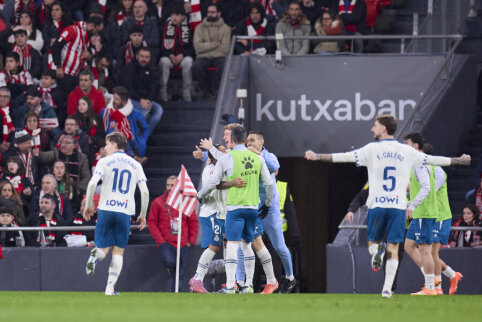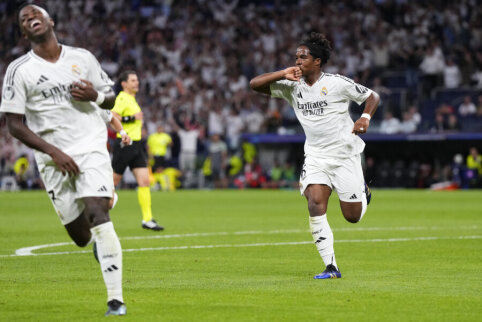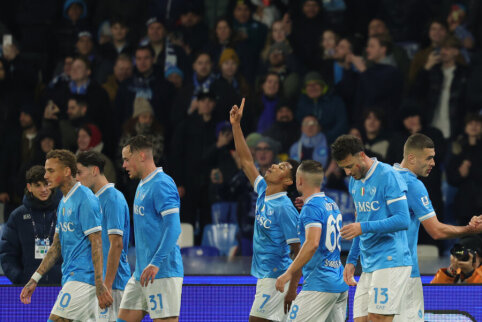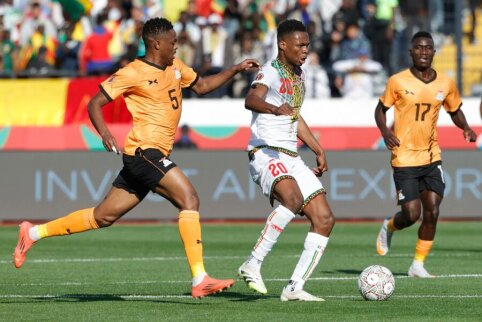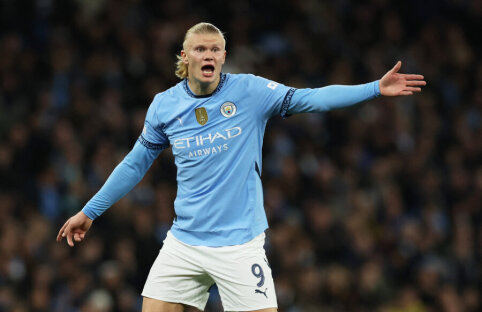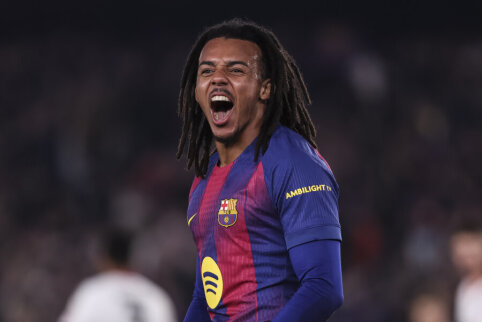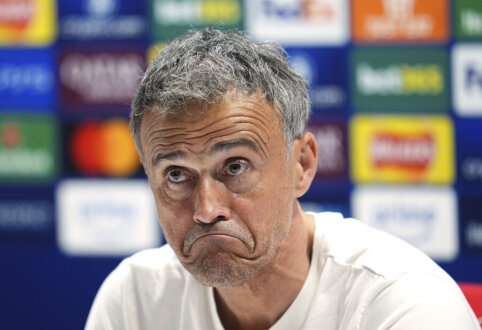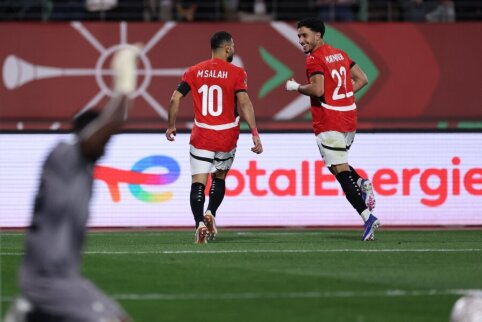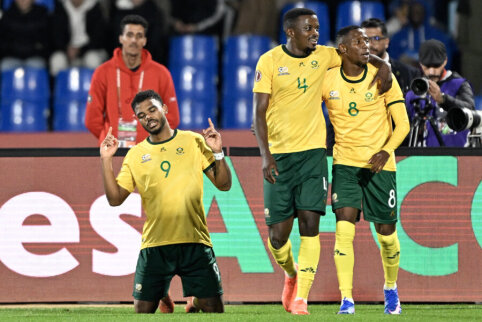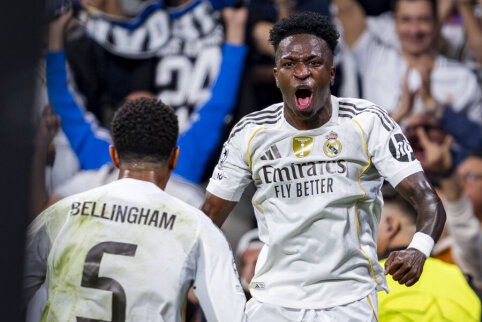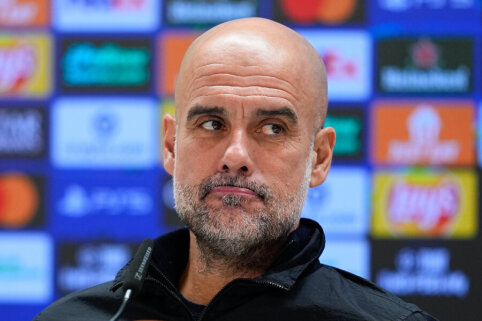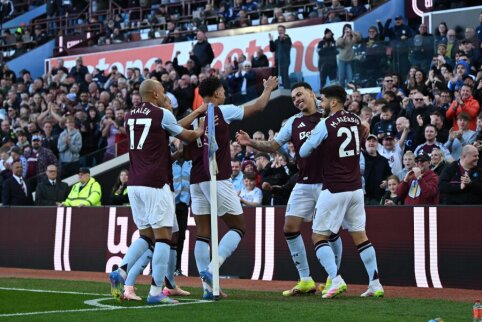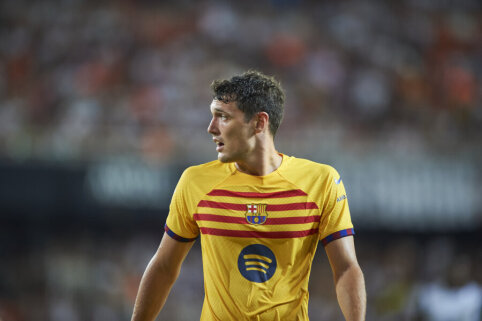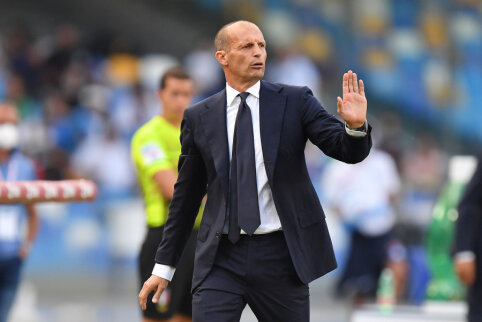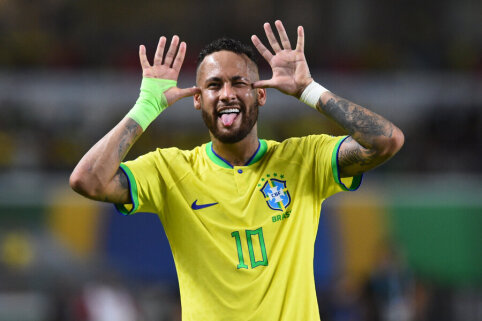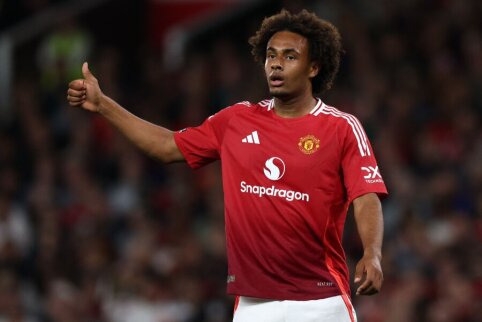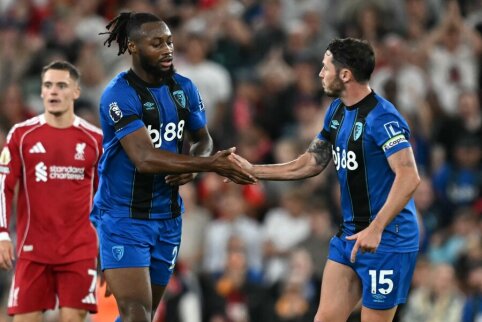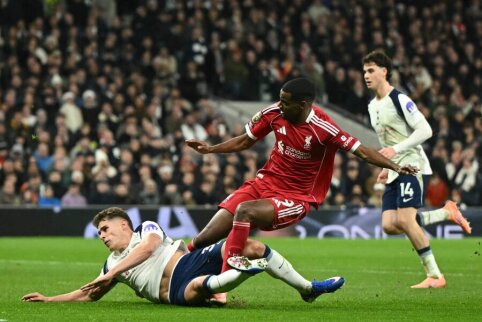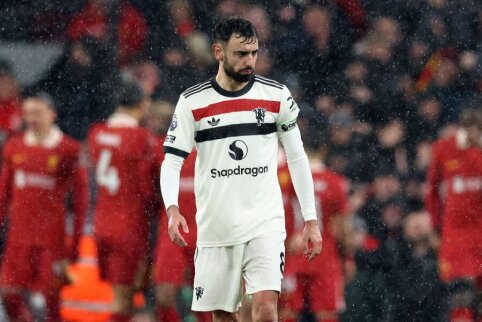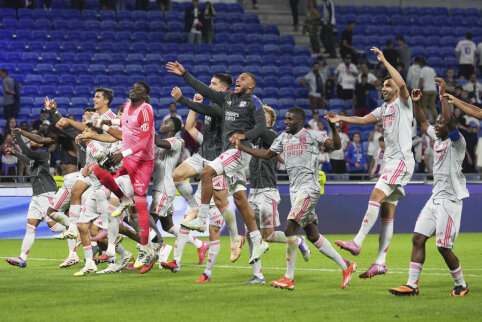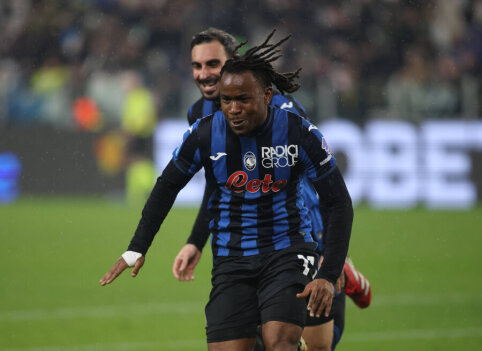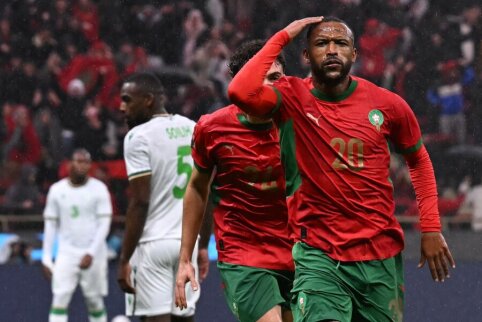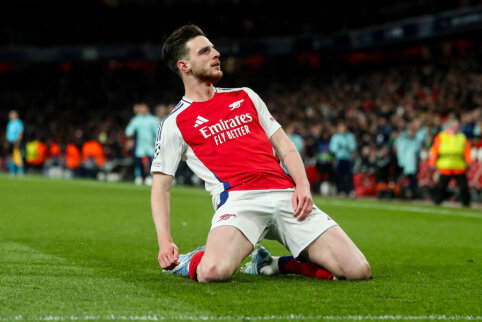 © EuroFootball.com
© EuroFootball.com
The first week of the 2006 World Cup has ended. In the strongest national team tournament taking place in Germany, the group stage matches have concluded - the most curious and active football fans could already see all the participants of the championship and form their own opinion about their chances in the following matches. Let's see what conclusions and predictions could be made after the first week. What can be said about the start of the championship? It can boldly be stated that the first week of the tournament did not disappoint. It did not disappoint those who expected to see an impressive turnout of fans from around the world supporting the performances of the Brazilian or English national teams, but it did not disappoint football enthusiasts who valued interesting and beautiful play during all matches. Indeed, the opening match may have raised the bar a bit too high, as in the Germany vs. Costa Rica game, we could see not only a wealth of goals but also great shots and dynamic and intriguing battles. However, it's hard to argue that the celebration of beautiful attacking football continued - not only the Germans but also the Italian national team got rid of the old defensive and pragmatic game "labels," and other teams did not allow boredom either. Overall, there were not many goals scored in all matches, but there were truly impressive shots - remember Torsten Fring's "bomb" from distance in the first match, unstoppable shots from Philipp Lahm, Tomas Rosicky, Tim Cahill, Kaka, Steven Gerrard, Bakary Koné, penalty kicks converted by Lee Chun-Soo and Robin van Persie, attacks marked by Fernando Torres, Esteban Cambiasso, and so on. So, even before the tournament reached the halfway mark, there were already many contenders for the title of the most beautiful goal of the tournament. Fans of surprises were not disappointed either - the more famous opponents were greatly annoyed, and the representatives of the small Caribbean state of Trinidad and Tobago managed to attract the sympathy of neutral spectators. However, like another debutant, Angola, which challenges the sceptics' predictions, it is not a team that can be called a "dark horse" capable of achieving significant results and fighting for prize places - using the famous phrase, not everyone "breaks through the three peas" to the goal. In general, there were no more surprises from other shocking teams, as favorites won in many matches. Unexpected results so far could be attributed to Ecuador's convincing victories and the fact that in Group G, after the first matches, South Korea leads the group instead of France, but even this could be seen more as a temporary phenomenon. Both football specialists and fans are most disappointed by France - the 1998 World Cup champions failed to beat Switzerland, and the performances of Lilian Thuram, Zinedine Zidane, and Patrick Vieira confirmed that their best days are behind them. The championship is progressing not very successfully for a few more European teams - neither Poland nor Serbia and Montenegro were able to score goals and play poorly, so they will have to go home early if they cannot improve their game. The same fate could await the Ukrainian national team if they fail to improve their game, while Sweden is most likely to advance to the next stage only because of a dramatic victory against Paraguay. Nevertheless, just as the defeat of the Serbs in the "Group of Death," so after the tragic preparation for the tournament, the failure of Poland should not be surprising, while both the French and Ukrainians can progress further simply because their group opponents are certainly beatable even without playing at full strength. In this regard, probably the most unfortunate is the Ivory Coast national team, which, despite playing both of their matches against such teams as Argentina and the Netherlands, managed not to surrender after conceding two goals and until the last moments of the matches tried to avoid defeat by not allowing their opponents to relax. However, that was not enough to resist the powerful opponents, and, unfortunately, despite playing well, the championship will end for the African team after the group stage. Meanwhile, the Argentine and Dutch national teams from Group C demonstrated with their performances that they can go far. Especially successful were the players coached by José Pekerman, whose game left probably the best impression of all teams. Although the Argentines may not play as creatively and attractively as the more experienced Brazilians, they undoubtedly do so most effectively - probably no one can accurately and skillfully pass the ball to each other, and the ability to take advantage of opportunities matches no one has shown yet. Solid defense, "hard" work in the safe line performed by Javier Mascherano and Esteban Cambiasso, accurate passes and shots by Juan Román Riquelme, Hernán Crespo's precision in finishing attacks and the ability to penetrate opponents' defense by releasing talented players such as Lionel Messi and Carlos Tevez onto the field probably make Argentina one of the main contenders to reach the top. Good performances were also shown by the teams of the Czech Republic and Italy from Group E, as well as by Spain, which started the championship with a smashing victory, but for these teams to continue their successful journey, they will have to overcome several barriers. The Czechs may be hindered by a shortage of forwards due to injuries, as the giant Jan Koller is injured and may not play until the quarterfinals, while Milan Baroš is still not recovering. The weak spot for the Italians is the full-backs, and team leader Francesco Totti has not regained form and how he will cope with discipline is uncertain. However, from the positive side, as judged from the first matches, the scandal in the country did not affect the team too much psychologically. Moreover, one of these two teams may have to face Brazil in the next stage, and in order to avoid such a fate, they will most likely need to strive to win the group. This should not be too difficult for the Spanish national team, which has already crushed its main rival Ukraine, but it can be said that in that match, luck smiled on the Spaniards and their poorly performing opponents, so the true strength of the team led by Luis Aragonés will only be seen when they face more serious opponents, which neither Tunisia nor Saudi Arabia pretends to be. If there are no surprises, dealing with not very powerful opponents in Group G should still be possible for France, but the French will have to fight seriously for the first position. Another group of national teams, which did not play impressively but achieved satisfactory results, includes Brazil, England, and Germany. All three teams secured victories, but their play raised more questions than answers. The team that garnered the most hope did not live up to expectations is the reigning World Cup champions Brazil, which practically won solely due to Kaka's individual masterful skill and not through joint efforts. The team play was lacking for the Brazilians, there was a lack of sharp attacks down the wings, and Ronaldo and Adriano both looked blank in attack, although this is not very surprising, as both forwards had a poor season for their clubs and statements about losing weight and having a better psychological state due to mood in the team did not help them find their game. There is still time for that, but it is likely that the team coach Carlos Alberto Parreira will have to look for other options to revive the game in the attacking line. England's national team strategist Sven-Goran Eriksson also faces a similar dilemma because after an injury, Michael Owen has not been able to regain his sports form, while Wayne Rooney, who has recovered from injury, is already vying for a place in the starting lineup, but it is not easy to give up the opportunities provided by Peter Crouch when fighting for high balls. However, the most problems for the English are not just in attack, but in general, the inability to build up attacks, which was particularly evident in the match against Paraguay in the second half, and the failure to use chances like in England's match against Trinidad and Tobago. Many opportunities were wasted in the match against Poland by the tournament hosts Germany, but they should most worry their fans about the defensive line, which conceded two goals in the game against the not very powerful Costa Rica team. The attack is going better, but the young German talent Lukas Podolski has not yet demonstrated the play that was expected of him. Meanwhile, the Dutch, whose players critically evaluated both hard-fought victories, have a new star - forward Robin van Persie, who has already scored a goal and provided an assist in the championship. The latter, together with Arjen Robben, form a very dangerous "explosive" force, and if Marco van Basten can teach his disciples how to play when leading, this team can pose a serious challenge in the fight for the first place in their group to the world already charmed Argentina. As one of the reasons for their poor play in the second halves of matches, both the English and the Dutch named the enormous heat in Germany, and this is probably undeniable - both teams played their first two matches in daylight, baking in the merciless summer sun. However, it undoubtedly affects both teams on the field, and influences other factors, such as fatigue after a long club season. Many of the most famous players from the Brazilian, English, and French national teams belong to teams that usually compete for the highest titles on three fronts, so they have to expend more energy than players from weaker clubs. Although FIFA this year tried to allow players to rest as much as possible after the season, it seems that this does not help much. For example, the Ivory Coast defenders Kolo Touré and Emmanuel Eboué did not demonstrate such brilliant play as in club matches because they had almost no vacation - they had to participate in the African Cup of Nations in January and reached the Champions League final with Arsenal. One can speculate that this was also taken into account by the coaches when assembling the national teams, especially José Pekerman and M. Van Basten, who gave up stars and invited less famous, younger, and more rested players to the team. At least so far, this approach has had its justification; however, it must be admitted that experience is also very important in such a tournament, which will be particularly useful when crucial battles begin in the knockout stages. However, predicting the champions of the tournament with such high-level teams playing is very difficult, but I have no doubt that we still have many beautiful and intriguing battles ahead of us. The Grand Football Fever in the world continues - the further we go, the more we enjoy it, I wish all football fans many unforgettable moments!
This opinion does not necessarily coincide with the overall opinion of EuroFootball.com. If you agree/disagree, you can express your thoughts by sending articles to [email protected]
